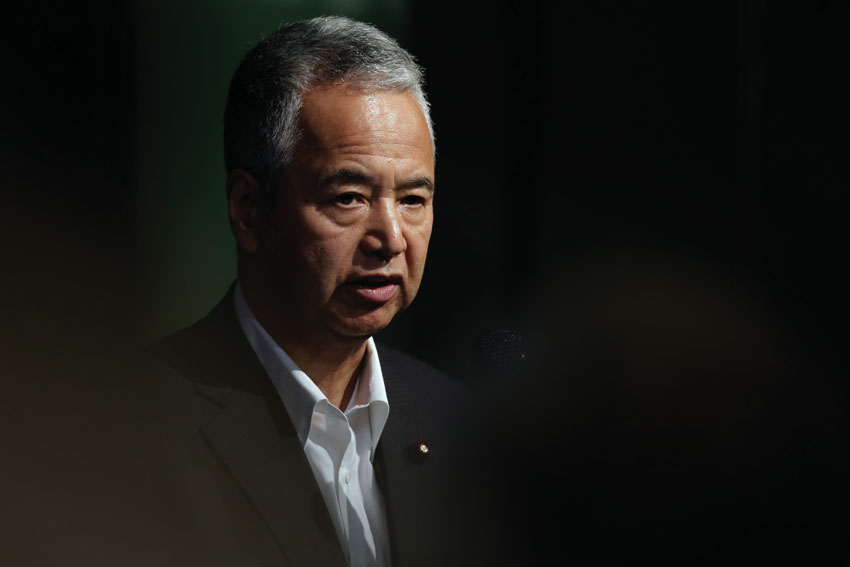With the landmark Trans-Pacific Partnership (TPP) all but final, Japan’s multinational corporations are revving up for a new era in trade and commerce

The TPP pact aims to liberalize trade among 12 Pacific Rim nations, representing 40% of the world’s economic output and nearly one-third of its trade. And after five years of tough talks, an agreement between negotiators was finally reached on October 5, which has been described as the first important step in its eventual implementation. The next step will be the ratification of the treaty in each member state.
When ratified it will cut red tape, strip away barriers and tariffs, and raise the labor and environmental standards among the participating countries, while maintaining the protection of intellectual property rights. Proponents argue that the pact will create jobs, drive sustainable growth and promote inclusive development and innovation across the Asia-Pacific region.
“The TPP will impact a wide range of industries rather than a few specific ones. In addition to eliminating tariffs, we also need to eliminate the full trade barriers and set up common rules for commerce, all while protecting intellectual property,” says Akira Amari, Minister for Economic Revitalization and the man in charge of ratification of the TPP in Japan, which officially joined negotiations in 2013.
“In other words: goods, people, capital, and information need to flow freely in the Asia-Pacific region. However, throughout the 12 member countries of the TPP, we need a stable climate for investment with a clear framework to carry out these investments with common rules,” he adds.
The Japanese government recently agreed to lift 95% of tariffs on industrial, farm and other products imported from TPP nations once the trade agreement comes into effect, while TPP member states will remove 87% of duties on such products exported from Japan.
This will mean increased competition in the domestic market for Japanese companies – a particular worry for farmers. But on the other hand, the TPP will open a much broader base of potential customers for the country’s exporters, especially in the U.S.
“All companies will be expanding their business transactions and that’s very positive,” says Masahiro Okafuji, President and CEO of ITOCHU. “If we can create a global competitive environment, that will mean a big boost for the Asia-Pacific region, and indeed the world, not just Japan.”
The combining of two of the largest economies in the world – the U.S. ranked first, Japan third – could result in unparalleled economic gains and will enhance relationships in all areas, from education and innovation to trade and on to tourism.
And indeed being two of the globe’s most powerful countries, the U.S. and Japan have played a vital role in shaping the negotiations between the 12 TPP members.
“There is a parallel consultation and negotiation going on between Japan and the U.S. In this bilateral negotiation, problems are discussed and are trying to be resolved and then the results of that negotiation are expanded to cover the 12 countries,” explains Kunio Ishihara, Chairman of the Japan-U.S. Business Council.
“This is a very important time in U.S.-Japan relations,” states Irene Hirano Inouye, President of the U.S.-Japan Council. The TPP, she adds, will provide even greater impetus for a more active partnership.
“Many investors in the United States are beginning to look at Japan now, which they haven’t done for 10 years or more because of the stagnation. It’s exciting to see the potential for American investment in Japan as well as Japanese investment in the United States.”
Minister Amari reiterates the TPP’s importance in a new era of Japan-U.S. relations: “The important point here is that Japan and the United States are teaming up together,” he says. “This is based on our shared values of freedom, democracy and the rule of law. This will be the bedrock of the TPP along with the market-oriented economics.”
Abenomics has helped to revitalize Japan’s export industry. But the long period of deflation that has dogged the country for the last 20 years has made Japanese businesses timid, and the TPP could expose Japan’s weaker and more inefficient sectors to vulnerabilities, but it will also serve to jolt them out of their complacency.
“I’m encouraging Japanese businessmen to go beyond their comfort zone, take risks, don’t be afraid of failure,” says Yoshiaki Fujimori, President and CEO of the LIXIL Group. “Self-confidence and optimism are the core attribute for any CEO, especially in Japan.”
“Innovation is key,” argues Takeshi Niinami, President and CEO of Suntory. “We’ll be creative, in this zone we can trade and transfer our know-how, our patents, and everything freely. We’ll innovate and find ways to differentiate ourselves from our competitors.”
Minister Amari acknowledges that the prescription to help Japan restore its economy will involve more than just opening up to new markets. He is pushing for fundamental changes that will revolutionize productivity, a formidable challenge for a country that has one of the world’s lowest birth rates and an aging population.
“We are implementing policies to reform our universities and national research institutes and to rouse investment of private companies in research and development and human resources. Market economies do not typically have much government involvement. In our current scenario however, the government needs to work with the private sector to establish a positive business environment,” says the minister.
Assessing the impact of the TPP in the long term, Mr. Ishihara believes it could be further expanded, eventually leading to “a free trade area covering the whole world”.
“In that sense, we can create a global economic sphere where people, goods and money would circulate very freely. That will be useful for every single country in the region as well as the Asia-Pacific region as a whole and for the planet.”
0 COMMENTS